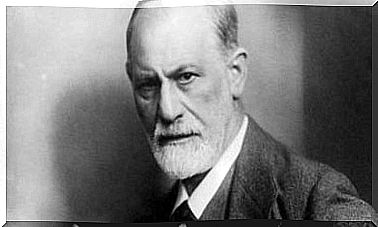Opinions, Our Personal Judgments Of Reality

When do we start to form opinions? We do this from an early age and further build them from our environment and ourselves. An opinion is defined as an idea, judgment or concept that a person has or forms about something or someone. Opinions are respectable and their heterogeneity is an indisputable source of richness and inspiration for creativity.
By listening to what others think, their opinions, we have the opportunity to reflect on other possible points of view. We said think about it, because… It doesn’t mean that every opinion is a truth! These are simply personal judgments, with no guarantee of validity. But … whether it is those of others or of our own, opinions are always marked by subjectivity.
An opinion is not a truth, nor a news, nor a fact
This is precisely why it is so important to differentiate opinions from statements based on proven facts, those truths that can be verified (not argued). An opinion is not a truth, it is not possible to assert an opinion. The opinion can be more or less supported or more or less argued. On the other hand, forming opinions about people or light situations promotes different levels of injustice that do not have a solid basis or a valid foundation.

It is very important to know that our mind is working with the information it has at all times, so that opinions expressed and disseminated with little information usually do not survive a debate in which strong arguments are made. In any case, let’s not forget, contrary to what we have all thought at some point, that changing our mind, when there are strong arguments that urge us to do so, is a smart attitude.
Another consequence of seeing opinions as they are, a leap into the void always involving risk, is caution in delivering them. People who perceive them in this way usually gather a fair amount of information before sharing it, listening attentively to the arguments of others… and not in order to reaffirm their arguments, to try to falsify their own opinions.
What happens when we bring them into conversations?
It is essential to separate opinions from statements; if we don’t, the consequences will not be pleasant, and these opinions or expressing them as affirmations can and tend to irritate others. Hence the importance of this concept: opinions are too often used as truths, forgetting that they are simply personal judgments.
L. Austin, in “The Theory of Speech Acts”, differentiates two territories: the territory of affirmations and the territory of declarations. Opinions (personal judgments) are part of the territory of declarations. A territory linked to validity and consistency and not to veracity. The certainty of possessing the truth and being right in this territory is a trap! An illusion or a mirage like we might see in the desert. In addition, it usually leaves no space for other ways of thinking (mental models) or for developing a mental openness, preventing us from realizing that personal experience is a conditioned reality.
What happens to people who fall into this trap?
These people assume that reality should match how they perceive it, so others should perceive the same. In any case, if the others do not, it would be a question of distortions of the perception of the former, not of the latter. These people implement “sincerics”, communicate their opinion without being asked of them, using sincerity as a virtue as an excuse, thus committing “sincerics”.
These people then find themselves trapped in this stagnation which prevents their adaptation to other forms of thought (mental models). They need to be right to feel safe and protected… How important is it to being right! This need sometimes becomes overwhelming and causes rational disagreements to turn into very heated and meaningless discussions.

Why is it so frowned upon to change your mind?
Basically… Why this need to continually reaffirm our opinions? We often just change our opinion about something or someone, thereby providing a great example of our flexibility and openness, while being consistent with new information we have received. . A simple change of opinion will never make us stop being who we are!
On the other hand, we can share opinions, reflections and thoughts, but that is not so far that we will be right, we will only share the same vision on a subject. It can be more or less coherent, it can be more or less valid opinions… But let’s not fall into the trap of believing that any opinion, hypothesis or prediction is more real than another! So Steve Jobs, in his famous speech at Stanford University in 2005, said:










